|
What do COVID vaccinations, the assassination of JFK, and the moon landing all have in common? They have all been the subject of conspiracy theories. And there are plenty more. According to research carried out by Pew Research Center, more than half of Americans have heard of QAnon, one of the better-known conspiracy groups of recent times. For as many blog posts, updates on Instagram, and TikToks, there are as many variations in the perception of reality. This is a good and bad thing. On the one hand, it is healthy to think critically about the information we are given. On the other, we can end up straying too far from common sense, putting us and others in danger
A sense of belonging and identity Conspiracy theories, extremism, even intolerance, can all give someone a sense of belonging and identity. This is especially so if someone accepts those conspiracy theories, extreme views or intolerance from friends or family members. Our emotions serve as a significant motivator for our behavior, and if the choice is between rejection of those views or a sense of belonging, often we will choose a sense of belonging. As psychology professor Arie W. Kruglanski points out, one of the appealing factors of extremism is the “ideological narrative—the story a terrorist group tells to justify its actions,” justifying the actions according to “group values.” Group values can give someone a sense of belonging or identity, and that can be quite attractive when someone has low self-esteem, or they feel isolated. Our fear of uncertainty When we create conspiracy theories or we hold extreme views, we claim to know "the truth", whether or not we have the evidence to back it up. We prefer this false sense of certainty because our brains are hardwired to fear uncertainty. For our predecessors, uncertainty posed a significant threat: It meant that we might not survive the night, we might not know where we would find food or shelter, and we might not know whether that beast was going to devour us. In the twenty-first century, we still fear uncertainty with the same sense of mortal dread, and so some of us would prefer to cling to the certainty of conspiracy theories or extreme views, rather than embrace that uncertainty. This is especially true if we have survived trauma. Research shows that we are more likely to adopt black-and-white thinking to avoid the uncertainty we fear. A growth in technology Before the cell phone and social media, conspiracy theories might have been a problem confined to small ripples in social circles. But every post, like and retweet transforms these half-baked ideas into verified authority. We haven’t got the time to verify every last piece of information, so we rely on information from others, and, as a result, we can quickly drift from any semblance of reality. And if we were just talking about us adults, that’s one thing, but as Helen Lovejoy said in the Simpsons, “Won’t someone please think of the children!”. According to the United Nations, the internet is one of the main strategies used to recruit children to extremism, and the same can be said for conspiracy theories. Pandemics = Conspiracy theories, extremism, and intolerance It is no coincidence that we are examining conspiracy theories as we emerge from a pandemic. History shows us that conspiracy theories, extremism, and intolerance thrive during times of crisis and upheaval. Most pandemics followed this pattern, whether it was the cholera epidemics between the 1830s and 1860s or the 1918 influenza pandemic which killed fifty million worldwide. As Ervin Staub points out in The Roots of Evil: The Psychological and Cultural Origins of Genocide and Other Forms of Group Violence, acts of extremism such as genocides “often arise under conditions of acute societal uncertainty.” Distress tolerance, and rebuilding a sense of belonging and identity So what to do about all of this? If our fear of uncertainty is keeping us reaching for conspiracy theories, extremism and intolerance as much as our quick fix of social media, we need to learn how to reduce the distress associated with uncertainty. Your brain is an amazing flexible tool, so it can relearn as much of what it has learned already. This includes learning to tolerate uncertainty. Sometimes this can follow a basic exposure approach, where we identify uncertainty in our daily life, and then adopt a mindful approach as we breathe through the discomfort of it. That way, our brain can learn that this is survivable. You can also identify where you might have made assumptions to fill the gap of uncertainty, checking the facts and challenging some of those black-and-white thought patterns. In addition, you can identify other ways to develop a sense of belonging and identity, ways that are more constructive than conspiracy theories, extremism, and intolerance. I hope you find all of this helpful. If you have any questions, get in touch. Book online today for a free callback. Alternatively, you can email us at [email protected] or call us on +1 (201) 779-6917. Chris Warren-Dickins LLB MA LPC Explore Transform LLC Counseling and Psychotherapy in Bergen County, New Jersey www.exploretransform.com +1 (201) 779-6917 #ConspiracyTheories, #Extremism, #Intolerance, #Polarization, #MentalHealth, #Depression, #Anxiety, #Stress, #Self-Esteem, #Counseling, #Psychotherapy, #FindATherapist, #Ridgewood, #BergenCounty, #NewJersey, #teletherapy, #FindACounselor I originally wrote this article a whole year ago, but much has changed since. So I thought I would dust it down and reissue it.
So much is going on in the world that I can understand why rates of anxiety and depression are escalating. When it comes to our relationships (intimate partners, work colleagues, family members, or friends), anxiety and depression can make a significant impact. So you need to have a few strategies at your fingertips, and one important strategy is an ability to maintain boundaries. In a relationship you bring your own baggage. You may feel more easily triggered, or scared, or angry, in certain situations that are beyond the control of your loved one(s). When it comes to your emotions, there are no rights or wrongs. You feel how you feel, but it is how you act on it, and how you communicate those emotions, that counts. This is where boundary-setting comes in. Boundaries help you to establish the space within which you can -
One approach to all of this is to use DEAR skills to set boundaries with love. DEAR skills were developed by Marsha Linehan, who created Dialectical Behavior Therapy (DBT). Here is a quick three-minute run-down on using DEAR skills to set boundaries with love -
If DEAR skills are new to you, start slowly. Try one or two parts of it the next time you need to set your boundaries with love. But that's not all... When you try to set boundaries, the relationship can be strained for a while. If this is the case, consider the following ten tips to nourish your relationship -
I hope you find all of this helpful. If you have any questions, get in touch. Book online today for a free callback. Alternatively, you can email us at [email protected] or call us on +1 (201) 779-6917. Chris Warren-Dickins LLB MA LPC Explore Transform LLC Counseling and Psychotherapy in Bergen County, New Jersey (and beyond) www.exploretransform.com +1 (201) 779-6917 “I was walking around with it, and I didn’t even realize it was trauma. I always assumed trauma was something a war veteran experienced or the survivor of a plane crash. I didn’t realize that my sh*tty childhood amounted to trauma, this thing that stuck to every part of my life and muddied everything I touched. I thought it was me; I thought I was fundamentally flawed, miswired even, and there were times when I felt hopeless. This made it so hard to reach out for help, and to truly believe that I deserved help, let alone that anything could help me.”
As a psychotherapist working with trauma, I hear this a lot. Although it is getting better, we have spent too many years underestimating the prevalence of trauma. If you think that it can arise as a result of adverse childhood experiences or other chronic situations where we are constantly denigrated, such as racism, homophobia, transphobia, or discrimination due to our socio-economic status or immigration status, you can see how prevalent trauma might be. When we have experienced trauma, when our coping skills have been overwhelmed, this can lead to changes in the functioning of our brain. Trauma changes us in terms of our hopefulness for the future, but also how we interpret the past, something I refer to as the bi-dimensionality of trauma. According to some neuroscientists, we attach meaning to memories, and that meaning is colored by our emotions. At the time of the trauma, we might not believe that we are at fault or powerless, and if we are a small child, we might not even have the ability to hold such beliefs. But over time, as we look back, we can start to interpret the trauma that way. As a result, we anticipate the future with a sense of futility or powerlessness. We can see the effects of trauma in how we behave, in our mood, in our sleep patterns, and physical health but getting help can be difficult when guilt and shame are such an integral part of trauma. From an evolutionary perspective, if a bad thing happens to us, it helps to remember that bad thing, so we avoid it in the future. If a saber tooth tiger attacks you, it serves you well to remember to avoid saber tooth tigers. The limbic system in our brain has various functions including affect, and affect helps to initiate behavior to help with survival. Shame is an aroused affect and so it is a strong deterrent, so it can keep us vigilant and act more defensively. This all makes sense when we were fleeing saber tooth tigers, and when our lifespan was much shorter. But in this modern world, we are living much longer, and witnessing so much more, so this constant influx of trauma has a negative impact on the brain over a longer lifespan. That the trauma inside us that leads to guilt and shame is reinforced by three processes - 1. It serves as a punishment because we believe we deserved it; this is a negative way that the brain makes us try to do better. 2. It serves as a distraction from deeper or more painful emotions. 3. If we think of something awful that might happen, that tricks us into believing that we can somehow control the future. For example, I know I will fail. To heal from trauma and break from this shame and guilt, we need to find ways to think of ourselves differently, and this could be something as simple as journaling. I love writing, whether it is fiction or non-fiction, it really helps me to interpret and re-interpret things I have experienced. In the same way, this is why talking to other people, including a therapist, can help. This process helps with trying to gain distance, developing compassion, but also understanding why certain things are a certain way. However… It can be hard to give up that punishment, distraction and control when it creates arousal that we can apply for gain. But we mustn’t take a limited view of gain; for example, we might end up working hard and reaping financial gain, but we might lose a great deal in our personal relationships. Trauma, and the associated shame and guilt, can be hard to manage without professional help, although this is not impossible. If you feel that you do need professional help with this, please reach out so you can have a free, confidential telephone conversation with me. Book online today for a free callback. Alternatively, you can email us at [email protected] or call us on +1 (201) 779-6917. Chris Warren-Dickins LLB MA LPC Explore Transform LLC Counseling and Psychotherapy in Bergen County, New Jersey www.exploretransform.com +1 (201) 779-6917 #Trauma, #Depression, #Self-Esteem, #Counseling, #Psychotherapy, #FindATherapist, #Ridgewood, #BergenCounty, #NewJersey, #teletherapy, #FindACounselor, #MentalHealth, #Anxiety, #Stress Negative thoughts, persistent flattened feelings, explosive anger, irritation, withdrawal, over-eating, tears, under-eating, over-working, disconnection from your loved ones, excessive use of social media, an inability to enjoy the things that usually give you enjoyment…
The list could go on. But what is this list? These could be signs of depression, and as you can see from this list, depression comes in many different forms. For some, there is a withdrawal from the world, and yet others might push themselves harder, engaging more with the world, even though they feel flattened and hopeless inside. Ever heard “You can stand in a room full of people and still feel alone?”. Well, depression is as tricky as that; it is hard to spot if you only look for the stereotypical signs of sadness or withdrawal. One thing that does help to identify depression is knowing the person involved. As a psychotherapist, I get to know my clients and learn what their usual patterns are, whether that is introverted or extroverted, whether they tend to feel nourished spending more time with their family or engaged in their work, and then I can see if depression has taken hold because usually these patterns will change. I also want to know whether this is a significant issue, usually of at least two weeks, or whether it is just a temporary dip. Depression can be particularly difficult because you can get trapped in a depression cycle. When you feel low, you assume there will be a negative outcome with the things that usually make you feel better, so you don’t engage in those activities, and this makes you feel worse about yourself. Your self-talk can become more negative, referring to yourself as a ‘failure’ and ‘worthless’, and it is particularly concerning if hopelessness becomes pervasive. If we look at other challenges to mental health, for example Obsessive Compulsive Disorder (OCD), there is, at least, an escape clause: For example, if we touch the door frame four times then our obsessive thoughts dissipate. With depression, however, there is no such escape clause because we are stuck in a double-bind where we assume there will be a negative outcome, and we assume we are inadequate in most situations. Given the links between self-harm, suicide, and depression, we must prioritize care for depression. However, depression is sometimes viewed in a negative light, and some have even referred to it as a weakness. The opposite is true. Recognizing depression and seeking help for it is a sign of strength. It is also important to understand that your body and mind often respond for a reason. In my psychotherapy practice, I use Polyvagal Theory to help people visualize depression as the dorsal vagal response, or rather the shutdown, at the bottom of the nervous system ‘ladder’. When we learn this, we can also understand that there are other parts of the nervous system, further up the ‘ladder’, and so we can use breathing exercises and tapping to move out of the dorsal vagal state, into a more connected ventral vagal state. This can only occur when our nervous system sense cues of safety, so it might take some time for you to learn to trust the therapeutic relationship and feel safe enough to flex in and out of these various states. All of this might seem a little unclear, but when we put this into action, you might notice some wonderful changes in your body and mind. If you have any questions about this or depression generally, get in touch today. Chris Warren-Dickins LLB MA LPC Explore Transform LLC Counseling and Psychotherapy in Bergen County, New Jersey www.exploretransform.com +1 (201) 779-6917 #Depression, #Self-Esteem, #Counseling, #Psychotherapy, #FindATherapist, #Ridgewood, #BergenCounty, #NewJersey, #teletherapy, #FindACounselor, #MentalHealth, #Anxiety, #Trauma, #Stress I love being a psychotherapist and parent because of the overlap: As I help clients to navigate life’s challenges, I grow and learn as a parent, and vice versa. One of the growth areas that offers a continuing opportunity for reflection is assertiveness.
We live in a world with other people, so we are continuously trying to strike a balance between the needs, emotions and experiences of others, and how that impacts our own needs, emotions, and experiences. To lean too much one way, and we become passive, acquiescing to every other person’s needs rather than respecting any of our own. If we have leaned too far this way, we might have been called “a people-pleaser” or “an appeaser.” If we had the misfortune of falling under the spell of someone abusive, they might praise us for our passivity, saying that we are “easy to get along with” or “no drama.” The trouble is, to live a life of pure passivity is not sustainable. If we go too far the other way, we might risk becoming aggressive. This is where we can only see our own needs, emotions, and experiences, without any care for others. So how do we strike a balance? Assertiveness is the sweet spot between passivity and aggression. Sometimes it is useful to visualize it holding two hands out: You can hold your own needs, emotions, and experiences as valid, whilst also holding the other person’s. Both are valid, and the real work is trying to negotiate a middle ground or overlap. Sometimes you will not find that area of compromise, and you have to decide which way to lean and weigh up the consequences of that choice. And sometimes you do not have the choice or freedom to exercise assertiveness (for example, if you are in a work environment where you need to keep your job to pay the bills). It is widely recognized that certain skills are useful to keep a balanced, assertive approach. For example, becoming comfortable with saying no, using short sentences without a need to overly explain your reasoning, and calmy repeating your point in the face of resistance. I always like to use the imagery of a tree swaying gently in the wind of resistance; you are flexible, hearing what they have to say, but remaining firmly rooted in the moment. So, we know that assertiveness falls in the middle of two extremes, but what does that look like in reality? - Assertiveness is not aggression – Aggression is an attempt to dominate others without respecting their rights or boundaries. Example: “I will leave you if you work late tonight.” Assertiveness is not passivity – Passivity is a failure to communicate one’s needs or to allow others to encroach on your boundaries. This could be the result of fear, or an inability to assert one’s rights, but it could also be an attempt to manipulate someone. Example: “Fine, work late, see if I care” (when they really do care). Assertiveness is an ability to hold your own needs, emotions, and experiences as valid, whilst also holding the other person’s – Example: “I feel lonely when you come home late from work.” I use Polyvagal Theory to help my clients understand their behavior, emotions, and bodily sensations. I have spoken about this theory in other articles, so here is a link to a quick recap. From a Polyvagal perspective, if we are not assertive then it might be because our nervous system is picking up cues of danger. In response, we might fight, flee or freeze, or we might shut down. In other words, we might use the sympathetic nervous system (if our nervous system senses that we can overcome or escape the danger), or we might switch to a dorsal vagal response, which means to go numb or blank-minded if there is no escape. There is also the fawn response, in other words, we hope to appease (or submit to) the aggressor to escape the danger. None of this is assertive. To become assertive, we need to feel safe to do this, or, in other words, we need to be in a ventral vagal state. There might be many reasons why we do not feel safe, and some of those reasons might not reflect present-day reality. For example, if a work colleague, or teacher or friend reminds us of an overbearing caregiver from our childhood, we might become ‘triggered’ by this association and lose the ability to exercise our skills of assertiveness. We can learn how to put ourselves in the best position to use skills of assertiveness by doing two things –
Chris Warren-Dickins LLB MA LPC Explore Transform LLC Counseling and Psychotherapy in Bergen County, New Jersey www.exploretransform.com +1 (201) 779-6917 #Assertiveness, #Relationships, #Counseling, #Psychotherapy, #FindATherapist, #ridgewood, #BergenCounty, #NewJersey, #teletherapy, #FindACounselor, #MentalHealth, #Depression, #Anxiety, #Trauma, #Stress As a psychotherapist I regularly help people when they are struggling with anxiety, depression, and trauma. It is important to look at why we might be suffering in this way, but it is also important to get help with the practical things. When we get anxious or depressed, and when we are experiencing the fallout from trauma (whether you are in the shutdown response, free, fight, flight or fawn), it can be hard to think straight, and so a psychotherapist can help you to problem-solve until you are able to do it one your own again. One example of this problem-solving can be finding the right professionals to help you and your family. In this video I talk to Laura Grube about when you might need the help of a speech therapist, how trauma impacts speech development, and what you can expect out of speech therapy. If you have any questions about this, please do reach out to us. Chris Warren-Dickins LLB MA LPC Explore Transform LLC Counseling and Psychotherapy in Bergen County, New Jersey www.exploretransform.com +1 (201) 779-6917 #Counseling, #Psychotherapy, #SpeechTherapy, #EMDR, #FindanEMDRtherapist, #EMDRTherapy, #EMDRTherapist, #TraumaTherapy, #FindATraumaTherapist, #HealingFromTrauma, #FindATherapist, #ridgewood, #BergenCounty, #NewJersey, #teletherapy, #FindACounselor, #MentalHealth, #Depression, #Anxiety, #Trauma, #Stress When do you see a psychotherapist, a licensed professional counselor, or a neurologist? In this video I talk to Dr Olga Noskin, neurologist at Neurology Group of Bergen County, and Dr Noskin specializes in vascular neurology. In this video you will learn that there is a great deal of overlap between our differing professions, particularly because we both deal with the brain and how it impacts how we function in the world. We need both professions to work together to help someone manage the physiological and psychological impact of their neurological complaints. Have a look at the video and let us know if you have any questions. Dr Noskin and I would be happy to answer them. Chris Warren-Dickins LLB MA LPC Explore Transform LLC Counseling and Psychotherapy in Bergen County, New Jersey www.exploretransform.com +1 (201) 779-6917 #Neurology, #EMDR, #FindanEMDRtherapist, #EMDRTherapy, #EMDRTherapist, #TraumaTherapy, #FindATraumaTherapist, #HealingFromTrauma, #FindATherapist, #ridgewood, #BergenCounty, #NewJersey, #teletherapy, #FindACounselor, #Counseling, #Psychotherapy, #psychology, #MentalHealth, #Depression, #Anxiety, #Trauma, #Stress If you need to talk to someone about anxiety, depression or trauma, and you are gender queer, transgender, or non-binary, you need to make sure that you are opening up in a safe environment. There are some professionals who might claim to be accepting, but the reality is far from true. I have been on the receiving end of professionals who let their personal biases leak out, making crass assumptions and pathologizing people because of their own lack of experience.
Some people who are reading this might have questions about gender identity, either because they are exploring their own identity, or they know someone who is. As a result, let’s answer: What is gender identity? Gender identity? In the words of Gender Spectrum, gender identity is 'our internal experience and naming of our gender. It can correspond to or differ from the sex we were assigned at birth'. Gender identity is not a binary concept, this is simply how we have understood (or oversimplified) gender. The reality is that gender identity exists on a spectrum, and this can include people who are transgender, cis gender, non-binary, gender queer, and other gender identities. 'Because we are provided with limited language for gender, it may take a person quite some time to discover, or create, the language that best communicates their internal experience. Likewise, as language evolves, a person’s name for their gender may also evolve. This does not mean their gender has changed, but rather that the words for it are shifting.' 'Each dimension of gender is informed by our unique intersection of identities, experiences, and personal characteristics. We are more than our body, gender identity and gender expression: we are also our race, ethnicity, class, faith, sense of geographic place, family history, and more. Our gender is personal because, while we share some of these aspects of self with others, the way that all of these identities, influences and characteristics come together is unique to each of us'. Read more here https://www.genderspectrum.org/quick-…/understanding-gender/ What is cisgender privilege? If someone’s gender identity corresponds to the sex they were assigned at birth, this is known as cisgender. To identify as cisgender means that you live with cisgender privilege, whether you are aware of this or not. Cisgender privilege means that you do not have to endure the overt and covert discrimination experienced by many people who are not cisgender (for example, people who are transgender, non-binary, or gender queer). Cisgender privilege means you can assume you will not be denied work, a home, healthcare, a place to worship, a family to love, or your personal safety, because of your gender identity. Cisgender privilege means that you don’t have to remind people (even your loved ones) of your pronouns, and/or your name (for example, you are not dead-named). Seemingly innocuous moments in everyday life can symbolize cisgender privilege, which basically assumes a binary construct of gender identity. Examples of these everyday moments are set out below:
To pretend that there are only cisgender people in society is to pretend that parts of our population do not exist. To do this is offensive, and it can leave a lasting impact on someone’s mental health. “40% of transgender adults reported having made a suicide attempt, and 92% of these having attempted suicide before the age of 25” (Trevor Project). In addition, 86% of transgender individuals reported sexual or physical assault. Here are some accounts from a Human Rights Watch report: “Alexander S., a 16-year-old transgender boy in Texas, said: I started getting a lot of anonymous people telling me to kill myself, that it wasn’t worth living. I called the school and told them what was going on and they didn’t do anything.” “It was “like a little mental pinch” when teachers used the wrong pronouns. “It doesn’t seem like a big deal, but eventually you bruise”, 17-year-old transgender student in Utah.” So, the biggest cisgender privilege is to live a life where you are less likely to commit suicide, and less likely to experience sexual or physical assault. Less obvious forms of discrimination include microaggressions, which are everyday slights, snubs or insults that communicate hostility (whether or not they are intentional). GLAAD ran a photo campaign to highlight this issue. Here are some examples from that campaign –
If we are to truly understand the concept of privilege, we cannot stop at gender identity. For example, a white transgender man will experience white privilege that a black transgender man will not. As the American Psychological Association points out, each of our “social identities contributes uniquely and in intersecting ways to shape” how we experience and perform our lives (APA Guidelines, 2018). In turn, this has an impact on “relational, psychological, and behavioural health outcomes in both positive and negative ways”. In a future article, we will look at other forms of privilege, including white privilege. In the meantime, we will close with some tips on how to address cisgender privilege – - Raise awareness about the privilege of being cisgender. - Stop making assumptions about people’s gender identity. If in doubt, and it seems appropriate, ask. If not, use ‘they’ rather than ‘him’ or ‘her’. - Normalize the concept of identifying gender, including a person’s pronouns, and include your own pronouns in your email signoff. - Gender identity is a personal matter. How you identify, and how much you share that with another person, is up to you. I hope you found this useful. Please get in contact if you need to explore this more. Chris Warren-Dickins LLB MA LPC Pronouns: (they/them/theirs) Explore Transform LLC Counseling and Psychotherapy in Bergen County, New Jersey www.exploretransform.com +1 (201) 779-6917 #Gender, #GenderIdentity, #Transgender, #NonBinary, #GenderQueer, #Anxiety, #Depression, #Trauma, #FindATherapist, #ridgewood, #BergenCounty, #NewJersey, #teletherapy, #FindACounselor, #Counseling, #Psychotherapy, #psychology, #MentalHealth When you work with an experienced psychotherapist, they will help you understand that certain behavior, emotions or bodily sensations can be signs of a trauma response. Often we identify trauma responses as fight, flight, freeze and submit responses -
When we learn to identify the trauma responses, this can also help us to understand where these originated. This can then take us once step closer to healing from trauma, because we can identify how the circumstances have changed since we experienced that trauma. For example –
To heal from trauma involves helping your nervous system to sense that the trauma is in the past, and you are able to feel the present safety. You can distinguish past from present. If you would like to explore this further, get in touch. Chris Warren-Dickins LLB MA LPC Explore Transform LLC Counseling and Psychotherapy in Bergen County, New Jersey www.exploretransform.com +1 (201) 779-6917 #EMDR, #FindanEMDRtherapist, #EMDRTherapy, #EMDRTherapist, #TraumaTherapy, #FindATraumaTherapist, #HealingFromTrauma, #FindATherapist, #ridgewood, #BergenCounty, #NewJersey, #teletherapy, #FindACounselor, #Counseling, #Psychotherapy, #psychology, #MentalHealth, #Depression, #Anxiety, #Trauma, #Stress Three years ago, when I wrote The Stunned Silence of an Anxious Mind, we were full throttle into a pandemic. Because there was so much uncertainty, there was so much anxiety, and I struggled to keep up with the demands of my psychotherapy practice, while also trying to keep my young children healthy and balanced.
Three years on, and the mental health of the United States has not improved. Rates of anxiety and depression have increased from one in ten adults to four in ten adults, and part of this is due to the increase in intolerance and discrimination. We only need five minutes to scroll through the news headlines to see examples of this. Anxiety and depression, whether or not fueled by intolerance and discrimination, can make your self-esteem crumble, like a house collapsing from within. No matter how much you learn, how many people you meet, no matter things you do that once gave you enjoyment, all of a sudden you cannot tackle even the simplest of tasks, and for many, this can reveal itself as a blank mind. In my work as a psychotherapist, I use Polyvagal Theory to help people understand what our body and mind might be doing when it is stressed. In terms of Polyvagal Theory, a blank mind might be explained as our nervous system in the dorsal vagal state. This is the most unevolved state, when we do not feel safe, and our body and mind shuts down. Think of the prey that has been stalked by a saber tooth tiger, and it cannot escape; it needs to shut down so it does not feel the pain of the tiger’s jaws. In our work, I might help you to identify when you notice that you are in the dorsal vagal state, and you can learn how to try and flex out of it using breathing exercises or grounding exercises (for example, using your senses to identify sights and sounds, even smells, in the room). Further up the nervous system is the slightly more evolved sympathetic nervous system, otherwise knowsn as fight-or-flight. Think of the prey having a chance of escape from the saber tooth tiger, when its heartrate increases so it can try and fight off, or flee, the saber tooth tiger. When we experience anxiety, this is often because we are stuck in the sympathetic state. We sense danger and so our heart beats too much, we sweat, and we are nervous about the slightest thing. This is the nervous system, so we might not even be immediately aware of anything that should make our heart beat so fast. No matter the cause, we need to learn how to calm things down a little. The sympathetic state, and the dorsal vagal state, are both needed when we sense that we are not safe, so if we are safe, we need to help calm things down so we can use the most evolved part of the nervous system, the ventral vagal state. This is when we can connect with ourselves and others, when we can play and create and enjoy intimacy. What we need to get into this state, and stay in it, will differ for each person. For some, we might need to heal from trauma, for others, we might need to learn about the assumptions we are making, or the patterns of our behavior that are making things worse. But the first step is to understand our nervous system, what it is doing, and why it is doing it. The stunned silence of a blank mind, or the sweatiness of a racing heart is simply our nervous system doing what it is supposed to do; to protect us when it senses danger. With the right help, we can learn to respond to these biological tendencies in a calm and compassionate way, so we are best placed to go about our lives. After all, we cannot live, work, or love fully if too much of our time is spent blank-minded or sweatily heart-racy! I hope this makes sense. If it raises things you would like to explore, do get in contact. Chris Warren-Dickins LLB MA LPC Explore Transform LLC Counseling and Psychotherapy in Bergen County, New Jersey www.exploretransform.com +1 (201) 779-6917 #Anxiety, #Stress, #Panic, #Trauma, #Trauma, #FindATherapist, #ridgewood, #BergenCounty, #NewJersey, #teletherapy, #FindACounselor, #Counseling, #Psychotherapy, #psychology, #MentalHealth, It is hard to open up to someone and admit that you are struggling. So imagine what it is like when you do finally reach out, and you feel vulnerable, and you are met with more judgment, gaslighting, bullying and shaming. And imagine if all of this is thrown at you by your own therapist, doctor, pastor, or teacher.
This happens on a daily basis. I have met countless professionals who work with the LGBTQIA+ community when they should not. They should be marked with a red line around them and a warning sign that they are toxic and likely to further traumatize you. They smile and nod, claiming that they never turn away ‘such clients’, and then they let slip that their religious views do not allow them to recognize gender diversity, and they view marriage and adoption as available only for a man and woman, and their personal views do not allow for LGBTQIA+ education in their schools or churches. And so it goes on (the potential for discrimination is endless). As a community, we need to make sure that we are only seeking help from professionals who are affirming. It is not enough that they accept us, or turn a blind eye, or overlook certain aspects. Dr Jamie Marich recently wrote an open letter about this important distinction, and it is an essential read. Dr Marich explains that some of these professionals are working with members of the LGBTQ+ community when the professionals still hold onto harmful beliefs such as 'hate the sin, love the sinner', or using terminology such as ''choice', 'preference', 'lifestyle' and 'sin'. If you encounter a professional who falls short of affirming you then ask them for a referral to someone who can. A non-affirming professional does not have the expertise to understand the cumulative impact of microaggressions, and no matter how hard they claim that they are 'putting aside their personal beliefs', these will leak out and the relationship will fail. Due to the power imbalance, it is likely that the professional will leave you with the feeling that you are to blame for this failure. If you are already feeling vulnerable and in need of help, this could be catastrophic. As Dr Marich points out, non-affirming professionals who insist on working with us are 'literally killing members of the LGBTQ+ community’. Take care when you trust a professional. If they are not willing or able to affirm you, they are not in a position to truly help you. If you would like to explore any of this with me, please get in contact. Chris Warren-Dickins LLB MA LPC Explore Transform LLC Counseling and Psychotherapy in Bergen County, New Jersey www.exploretransform.com +1 (201) 779-6917 #QueerTherapist, #AffirmingTherapy, #LGBTQIA, #FindATherapist, #ridgewood, #BergenCounty, #NewJersey, #teletherapy, #FindACounselor, #Counseling, #Psychotherapy, #psychology, #MentalHealth, #Depression, #Anxiety, #Trauma, #Stress Trauma forms the meat and bones of much of my work at Explore Transform LLC, and so, if we view addiction as an attempt to escape suffering, addiction is bound to show itself in my work as a psychotherapist in New Jersey. And who can forget that drug overdoses kill 81.000 Americans each year. Gabor Maté explains that “so much of what we call abnormality in this culture is actually normal responses to an abnormal culture. The abnormality does not reside in the pathology of individuals, but in the very culture that drives people into suffering and dysfunction.” To address addiction, we need to address the suffering that is being endured. That includes helping someone heal from trauma, helping them learn more helpful ways to regulate their emotions. As a psychotherapist who uses Polyvagal Theory, this includes learning to notice and name different states (whether that is the shut-down of the dorsal vagal state, the fight-or-flight of the sympathetic nervous system, or the safe, calm and connected state of the ventral vagal state). I am based in New Jersey, so I mainly see clients here, but since the pandemic, I have also been helping clients who are based in my home country of the United Kingdom (London, in particular). When I lived there, I loved working alongside Jamie Willis, who is an experienced counselor in London. Jamie does some great work with people who are struggling with addiciton. In this short video, we discuss our work, and he reminded me of Rumi's words of wisdom: "There is a voice that does not use words'" but instead it manifests. One of the ways it manifests is in addiction. To address addiction, to address any sort of unhelpful behavior or emotions, we need to tackle the source of distress. In the case of my work, we need to work on the trauma, and in the words of Rumi, "the wound is the place where the light enters you." If you would like to explore this further, get in touch. Chris Warren-Dickins LLB MA LPC Explore Transform LLC Counseling and Psychotherapy in Bergen County, New Jersey www.exploretransform.com +1 (201) 779-6917 #EMDR, #FindanEMDRtherapist, #EMDRTherapy, #EMDRTherapist, #TraumaTherapy, #FindATraumaTherapist, #HealingFromTrauma, #FindATherapist, #ridgewood, #BergenCounty, #NewJersey, #teletherapy, #FindACounselor, #Counseling, #Psychotherapy, #psychology, #MentalHealth, #Depression, #Anxiety, #Trauma, #Stress |
Due to the COVID-19 health crisis, we are only offering sessions online.
Our address is 143 E Ridgewood Ave, #1484, Ridgewood, NJ 07450
Telephone: +1-201-779-6917
Lead clinician: Chris Warren-Dickins LLB MA LPC
EXPLORE TRANSFORM LLC
Our address is 143 E Ridgewood Ave, #1484, Ridgewood, NJ 07450
Telephone: +1-201-779-6917
Lead clinician: Chris Warren-Dickins LLB MA LPC
EXPLORE TRANSFORM LLC
© COPYRIGHT 2024 CHRIS WARREN-DICKINS. ALL RIGHTS RESERVED. NJ LICENCE # 37PC00618700
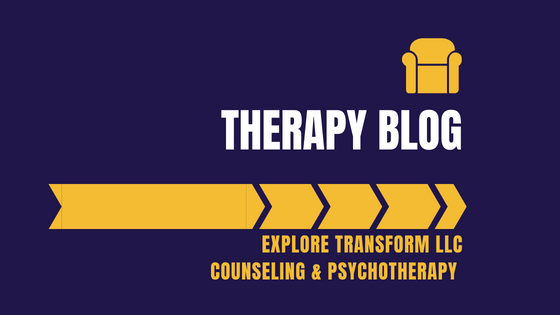








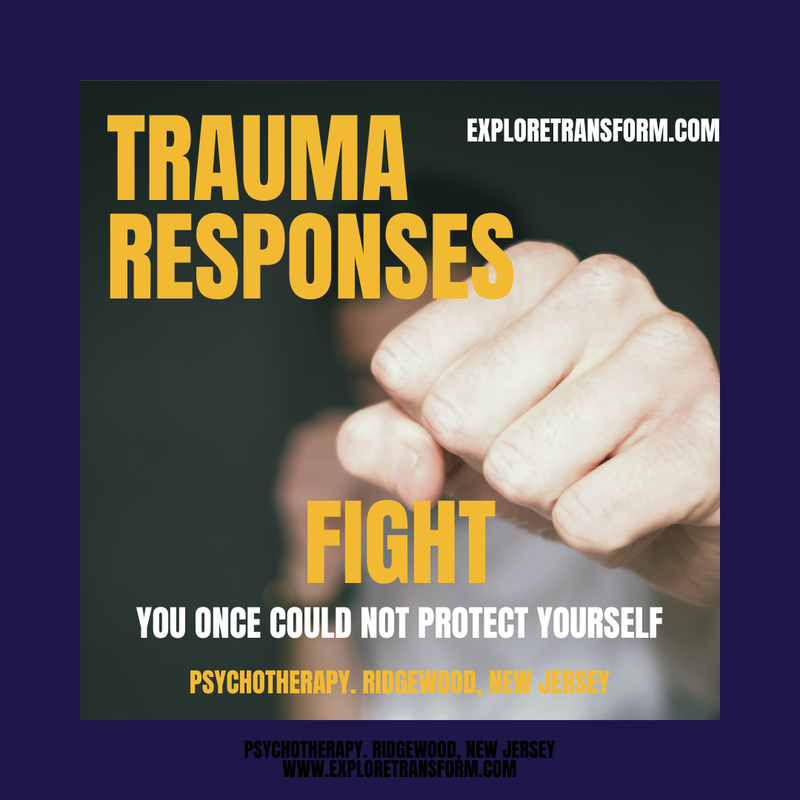

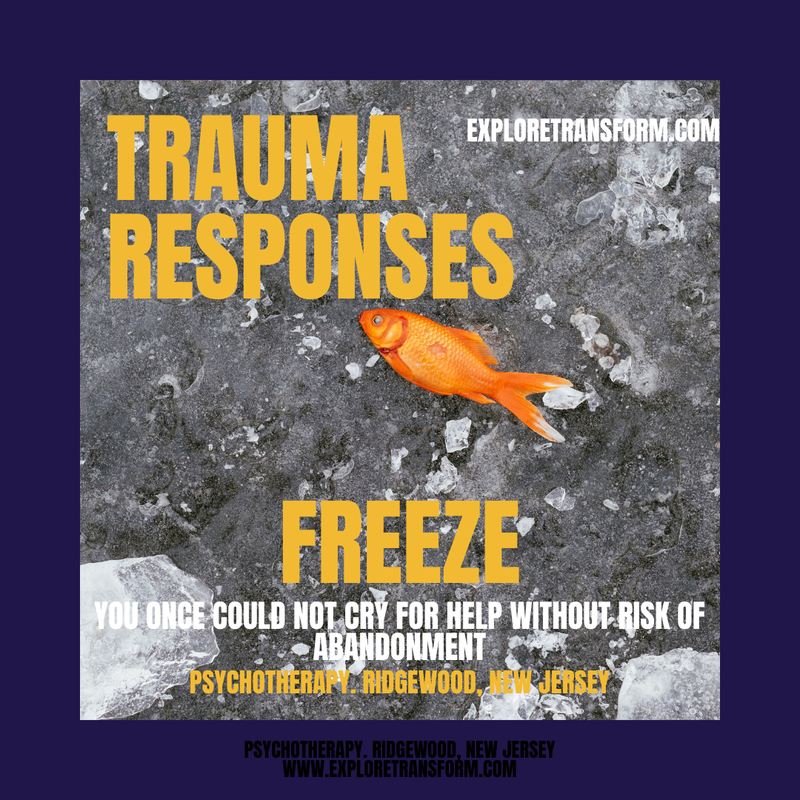
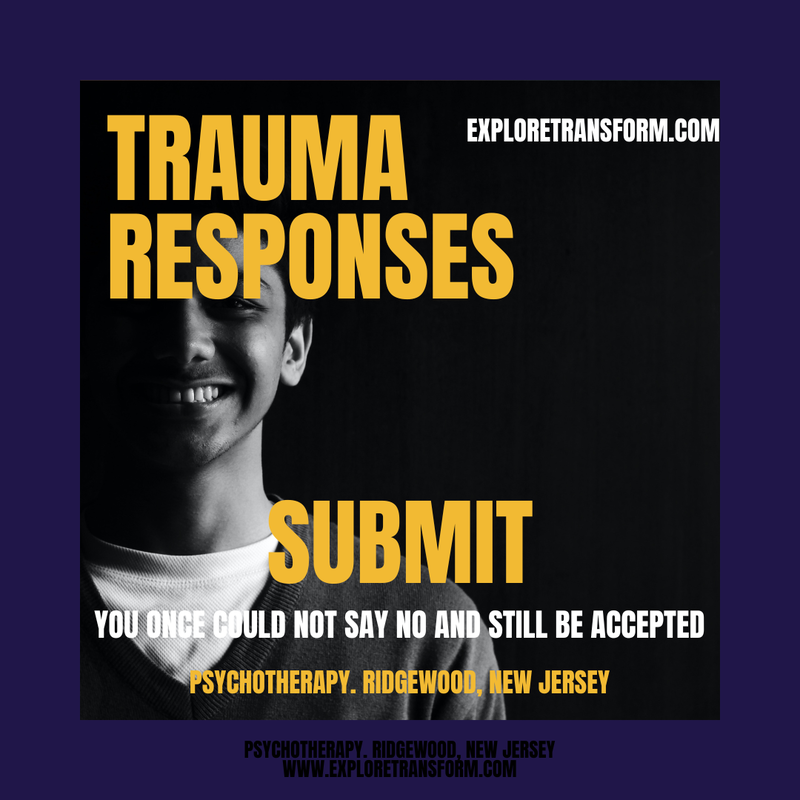
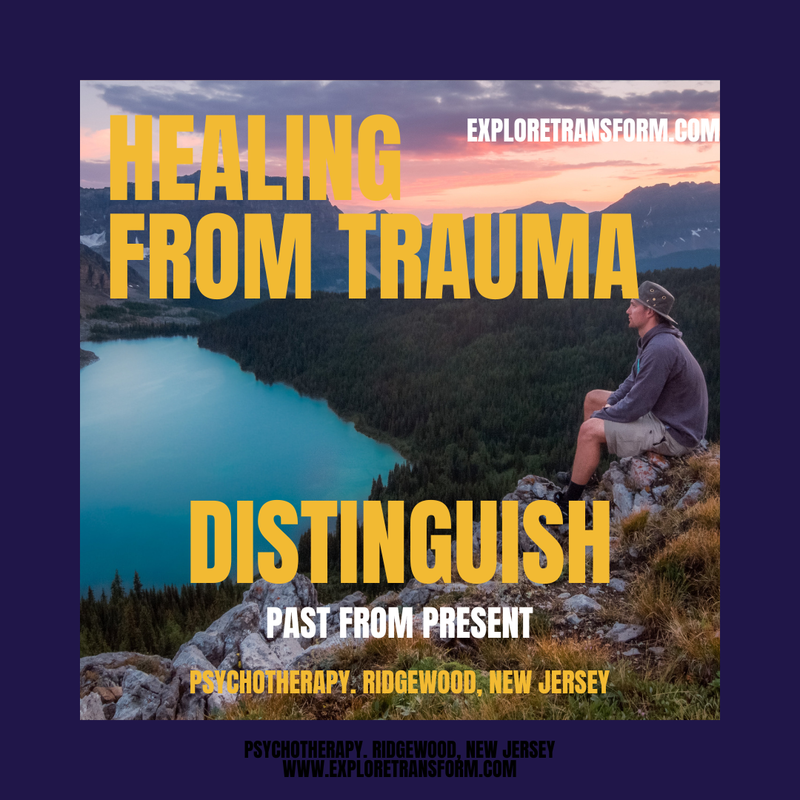





 RSS Feed
RSS Feed
